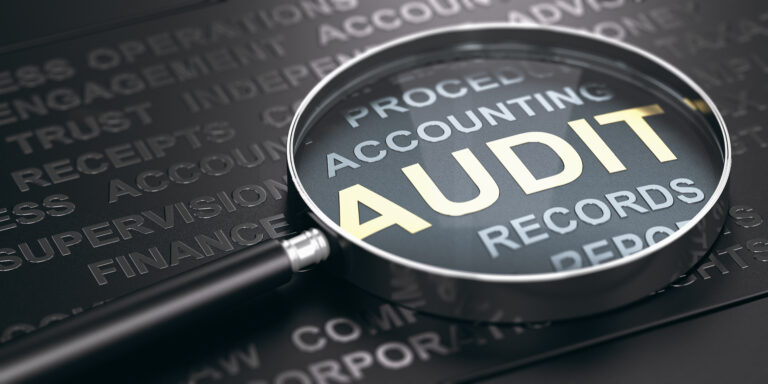Understanding Your CP501 and CP502 IRS Notices
To those who owe the IRS, you are not alone, approximately 30 million taxpayers are in the same position. Having said that, sooner or later, the IRS will reach out to you and you must be prepared. Whatever you do, don’t panic, and make sure you contact the IRS right away. You will receive the CP501 and CP502 IRS notices before other actions are required. Learn about these IRS notices in our article and contact a CPA in Miami if you have any questions.

CP501 Notice – Your First reminder
The IRS will send you the CP501 notice about a balance due on a tax account. This first reminder notice alerts you that you have an outstanding balance that needs to be paid within 10 days. Once you receive the CP501 notice, make sure you take the right steps as there are some possible actions by the IRS. The details will be laid out for you in the CP501 form itself, which will include the due date, the amount you owe, and your payment options.
Keep in mind, your balance will probably reflect more than what you thought it would be since they are regarded as delinquent. In other words, interest and tax penalties may have accrued by now. Underpayment interest rates are set up by the IRS every quarter.
CP502 Notice – Your Second Reminder
Soon after you receive the CP501 notice, if you don’t respond to it or resolve your balance, you will receive the CP502 notice – your second reminder. The second letter/notice is written in a more urgent tone and with the language stronger than in the CP501 notice. Remember, the time has passed since the initial due date. Also, the balance will be even larger than it was shown on your IRS notice CP501 with more interest as well as penalties. If you pay as much as possible soon enough, your penalties will be kept to a minimum.
When possible, don’t let it get to further IRS notices. They aren’t too pleasant to deal with as you may be informed that a tax lien has been taken against the assets you own, or further legal actions may be taken. But it does not have to be this way. When you take the proper actions ahead of time, the IRS is willing to negotiate with you. A tax accountant can inform you of the action steps based on your specific situation.
What Steps Should I Take If I Owe Back Taxes?
Each of the IRS notices mentioned above, the CP501 notice and the CP 502, will have a response section with an outline of the steps you should take to handle your taxes. You will have the following options:
- Pay IRS notice CP501 and notice CP502
- An IRS tax installment plan
- Dispute the amount you owe
Sometimes is not possible to pay your overdue taxes due to hardships or other circumstances you may be experiencing. An IRS payment plan is a good option as it allows you to pay your taxes in full within the approved timeframe. Keep in mind, there are interests and fees associated with an IRS payment plan. However, if you don’t have the funds, it may be the best option at the time. If you prefer paying your balance in full, you will have several options at your disposal to pay the IRS and state what you owe them.
If you choose the IRS installment plan, you will have the chance to pay your balance within the extended period with penalties and interest no longer accruing. But if you rather dispute the IRS balance, you must have a reasonable cause, which means you try to fulfill your tax obligations but were unable to do so. Some typical situations include but are not limited to, a natural disaster, fire, and casualty, unable to obtain records, death, or other serious illness. You will be required to provide proper documentation to support your claim.
How Can I Avoid Owing Taxes?
Prior to receiving the notices that may follow the CP501 form and the CP502 form, try to prevent getting yourself in that type of situation. The CP501 and CP502 notices are written in less threatening language than the upcoming notices. Nevertheless, you must handle this matter quickly whether on your own or by requesting counsel from an experienced tax advisor.
Don’t Miss the IRS Deadline
Don’t ignore correspondence from the IRS. A small tax bill may end up costing you hundreds or thousands of dollars if you don’t handle it in an appropriate and timely manner. Your CP501 and CP502 notices will include the due date, so you can plan from there. The IRS is generally open to arranging a payment plan that’s convenient for you and your specific situation. The more time you wait, the more interest and penalties will accrue, and they will have no have other option than levying your assets to pay your tax bill.
Beware of Fake IRS Letters
While the IRS sends letters to taxpayers, unfortunately, scammers tend to take advantage of the confusion, and they are also sending letters. Taxpayers continue to report receiving fake IRS letters. A tip to spot a legit IRS letter include, making sure the letter arrives in a government envelop. Further, it must have a notice or letter-number usually found at the top right-hand corner. It should include information about your tax rights and your payment options. Note, the IRS will never threaten to arrest or deport you. With tax scams coming from all directions, it’s important you keep your personal information safe.
Contact A Tax Accountant to Determine the Best Course of Action
If you can’t pay your debt immediately, contact a tax accountant in Pembroke Pines. They’ll help you figure out what’s the best course of action for your specific situation. You may have to file an offer in compromise, which helps you reduce the amount you owe. Moreover, it eliminates standing penalties and fees. You may also file for Currently Not Collectible (CNC) status. This status places tax collections on hold until your financial situation is approved.
Notwithstanding the course of action, a CPA in Pembroke Pines can help you gather the necessary evidence and contact the IRS. Simply put, take a deep breath, gather all the documents you need, and talk to us. We will help you sort your options and negotiate with the IRS on your behalf.
Legal Disclaimer
Information only / No Legal Advice Intended
This publication is designed to provide general information regarding the subject matter covered. It is not intended to serve as legal, tax, or other financial advice related to individual situations. Because each individual’s legal, tax, and financial situation is different, specific advice should be tailored to the particular circumstances. For this reason, you are advised to consult with your own attorney, CPA, and/or another advisor regarding your specific situation.
To ensure compliance with requirements imposed by the IRS, we inform you that any US federal tax advice contained in this communication (including any attachments) is not intended or written to be used, and it cannot be used for the purpose of (i) avoiding penalties under the Internal Revenue Code or (ii) promoting, marketing, or recommending to another party any transaction or matter addressed herein. Always seek advice based on your particular circumstances from an independent advisor. Any disclosure, copying, or distribution of this material, or the taking of any action based on it, is strictly prohibited.





